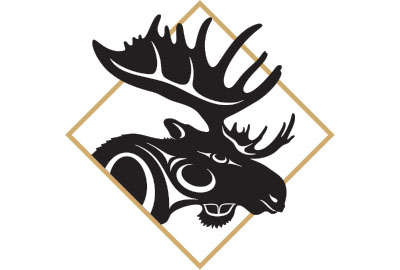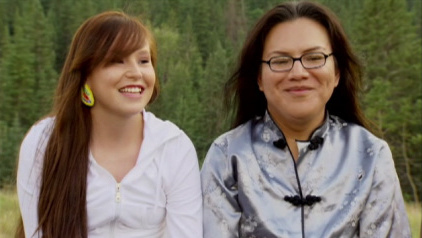The Film: #Indigeneity 2S
Our Indigenous Curator, Rylan Friday, has programmed six shorts for our September #Indigeneity 2S event.
These Indigiqueer films showcase strong female-identifying and non-binary directors in the Indigenous and Queer community.
We’ll be hosting a live Q&A with filmmakers Thirza Cuthand, Jazmine Smith, Martin Morberg, and Sage Lacerte from community cause, Moose Hide Campaign, on September 17th at 6pm PT.
I Like Girls — Diane Obomsawin
First love is an intoxicating experience, but with it can come excruciating awkwardness, unrequited emotions, and confusing issues of identity. In her trademark playful style, Quebec cartoonist and animator Diane Obomsawin adapts her graphic novel for the screen, using endearing anthropomorphic figures to tell poignant real-life stories of love.
Woman Dress — Thirza Cuthand
Pre-contact, a Two Spirit person named Woman Dress travels the Plains, gathering and sharing stories. Featuring archival images and dramatized re-enactments, this film shares a Cuthand family oral story, honouring and respecting Woman Dress without imposing colonial binaries on them.
First Stories – Two Spirited — Sharon A. Desjarlais
First Stories – Two Spirited presents the empowering story of Rodney “Geeyo” Poucette’s struggle against prejudice in the Indigenous community as a two-spirited person (gay, lesbian, bisexual, and transgender).
I Am Me — Jazmine Smith
Jazmine grew up in Flying Dust, Saskatchewan as a boy who felt out of place… until discovering makeup, which helped her transition and begin her journey into womanhood. This is a story of acceptance, self-love and jewelry.
Biidaaban (The Dawn Comes) — Amanda Strong
In this mesmerizing stop-motion short film from acclaimed director Amanda Strong, an Indigenous youth joins forces with a 10,000-year-old Sasquatch to revive ceremonial sap harvesting in suburban Ontario.
HIV: Healing Inner Voices — Jada-Gabrielle Pape and Martin Morberg
Through the lived experiences and voices of eight Indigenous people living with HIV, this poetic short documentary combines storytelling and the healing power of Indigenous culture to reflect on the realities of stigma and discrimination for Indigenous people.






